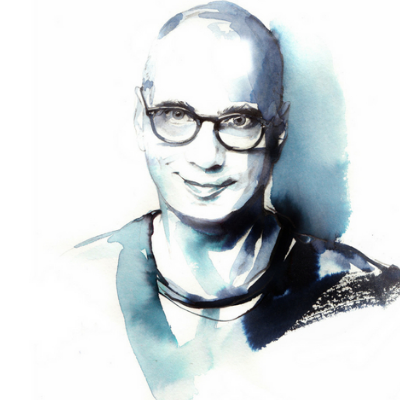What happens to our data after death?
There are some things in life that we keep putting off. Not out of laziness or lack of time, but because we find them particularly difficult. I'm talking about coming to terms with your own finiteness and organising your estate. But that's not so easy these days. In the past, only very specific things were usually bequeathed: valuables, investments, property.
A good friend died unexpectedly the other day. His traumatised family had to search for passwords and digital access under time pressure.
But in the internet age, we must now also consider digital legacies and ask ourselves the legitimate question of what should actually happen to our data after death. To avoid any misunderstandings: This article is not about fine legal advice on the subject of inheritance in the digital world, but about measures to be taken at an early stage to save our loved ones unnecessary trouble in a hopefully very distant future. A brief example shows what can happen if we fail to take such precautions.
A few weeks ago, a very close friend of mine died unexpectedly. His traumatised family now has to organise, decide and take care of many important things under great time pressure. But they're not making much progress, as they have to deal with the tedious and possibly even futile search for passwords and other digital accesses.
Password-protected computers cannot be cracked
Swiss inheritance law also includes digital data «stored on a local data carrier or end device» as part of the estate, as the Federal Data Protection and Information Commissioner states on its website. But what use is this legal basis if the surviving dependants do not have the necessary passwords and access codes?
Unfortunately, it often happens that spouses are unable to unlock the deceased's smartphone and are therefore denied access to important apps and information. The same applies to the computer. If it is password-protected, it reliably keeps the urgently needed private and business documents and correspondence under lock and key like a safe. However, if the deceased's various digital accounts are not finally deactivated, there is a risk that they will be misused by strangers for identity theft and other criminal offences. For these reasons, it is important to take appropriate precautions in good time. But how to start?
Getting an overview is essential
Admittedly, we leave much more data behind unnoticed during our lifetime than we can even see through. A list of all our conscious online activities has therefore proven to be particularly ideal. Creating this list can be an evening-long programme, as it is impossible to quickly work out how many different accounts we use and where.
Dealing with your digital legacy during your lifetime is tedious. But we must not shirk our responsibility.
The fact that they often have non-identical user names and passwords does not necessarily make things any clearer - especially if we have changed the password again and again over the years for security reasons. Experts therefore recommend the purchase of a so-called password manager to keep access data up to date. Test reports can be found on the Internet.
Appointing an authorised representative
Just as with a will, someone should know where this required list is located in the event of death. A paper version is also advisable, as USB sticks and other data carriers can fall victim to technical mishaps years or decades later. If you want to be absolutely sure about your digital estate, you can also seek legal advice from a lawyer.
But even then, we can't avoid making a list of accounts and passwords. It is best to use the following categories and questions as a guide:
- Communication
What should happen to my private and professional emails and messenger services? - Finances
Which accounts and custody accounts do I have - and which online accesses? - Insurances
Which insurance policies have I taken out online? - Digital devices
Which devices do I own and how are they protected (password, fingerprint, facial recognition)? - Online subscriptions
Which subscriptions, for example for software and online news, do I use? - Cloud systems
Which data is stored in which clouds? And what should be done with it? - Websites
Do I have a private website - and if so, should it continue to exist or be deleted? - Social media
What happens to my Facebook, Instagram, Linkedin and Twitter accounts ? - Shopping
Which online department stores have I actively used? - Other information
What should happen to my online memberships?
Gaining an overview of your online activities is also a wonderful opportunity to get rid of old baggage and delete any accounts you don't really need. Check that they are up to date once a year. An entry in the online calendar helps. Yes, it is tedious to deal with such issues during your lifetime. And yes, it is legitimate to suppress thoughts of your own death. But we must not shirk our responsibility towards our family.
4 tips for your digital estate list
- Make a note of the name, address and URL of the respective provider
- Make a note of the corresponding user name and password.
- Leave your mobile phone number and SIM card PIN for all messenger services.
- For each item, write down what you think should happen with the account.




